
The most loved italian fall dish has to be pumpkin ravioli. As soon as the leaves change color I start thinking of making pumpkin ravioli. There are many versions out there, but this is the tried and true Italian classic that you will find in various regions of Italy.
What kind of pumpkin to use? When many people think of pumpkin they think of the giant ones used for jack-o-lantern or decoration. However there are countless varieties of delicious pumpkin out there. I like to use red kuri squash, cinderella, jarrahdale, Musquee de Provence (aka Fairytale), hubbard just to name a few.
Check out the gallery for more pictures on how to make this delicious pasta!
This recipe makes around 2 dozen ravioli.
(adsbygoogle = window.adsbygoogle || []).push({});Pumpkin Ravioli tossed in a brown butter and crispy sage leaves.
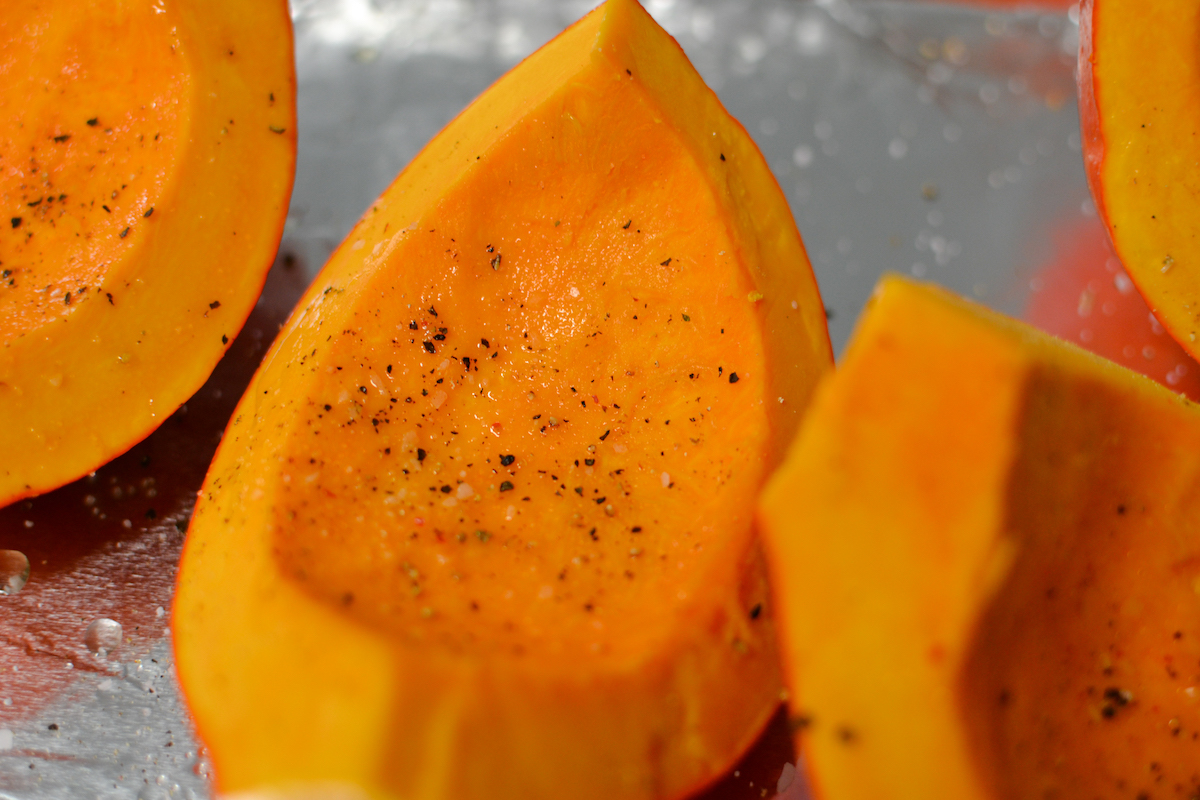
Carefully cut the stem of the pumpkin then cut the pumpkin in half. Clean out the seeds and string with a spoon. Carefully cut each half in half again.

Place the pumpkin on a foil lined baking sheet. Drizzle with olive oil and season with salt and pepper. Place in a preheated to 450 F and bake for 30-45 minutes. Timing will vary based on the size of your pumpkin. It is done when it is fork tender.
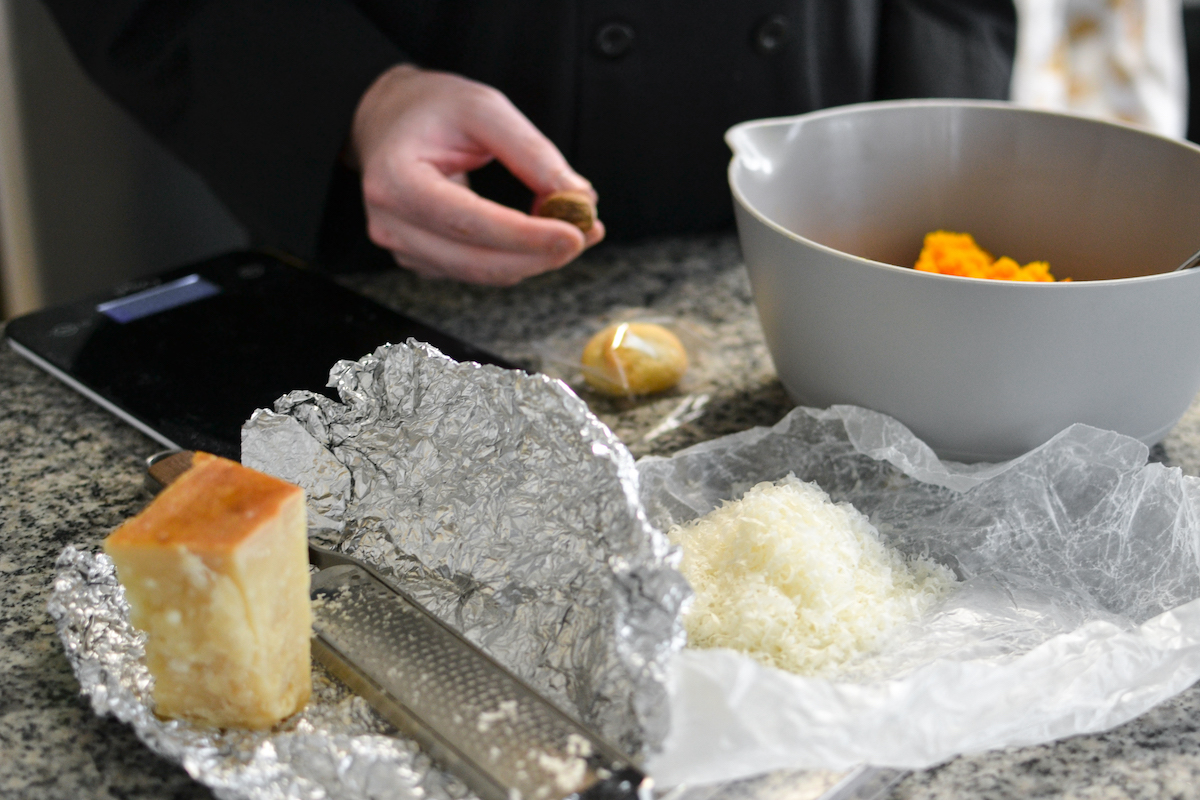
Once the pumpkin is cool enough to handle place a bit at a time in a potato ricer to mash. Once all the pumpkin is riced mix in the cheese, nutmeg and amaretto cookie. Mix well to combine and place in the fridge until needed.
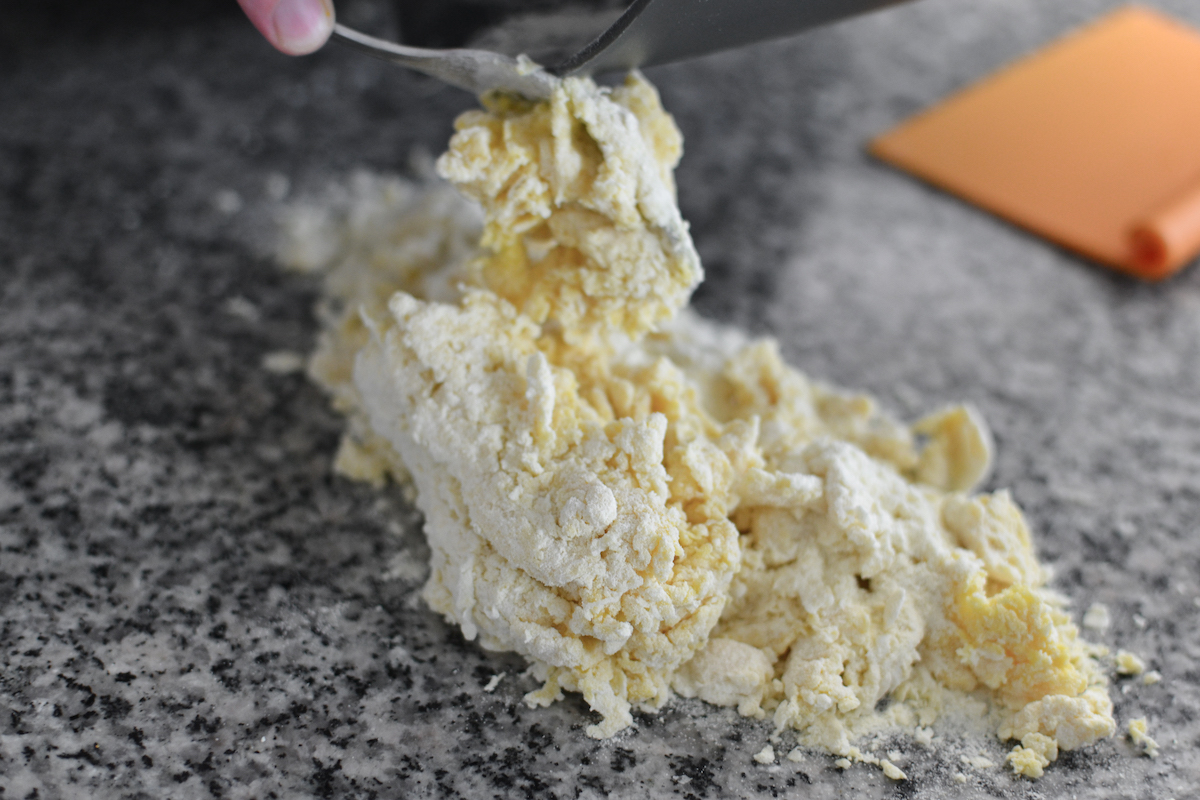
Using a large bowl and forming the flour into a well, crack in the eggs and slowly bring together. If the dough seems dry add more water. Knead for around 10 minutes or until the dough is elastic and smooth. Cover and let rest in the fridge for 30 minutes.
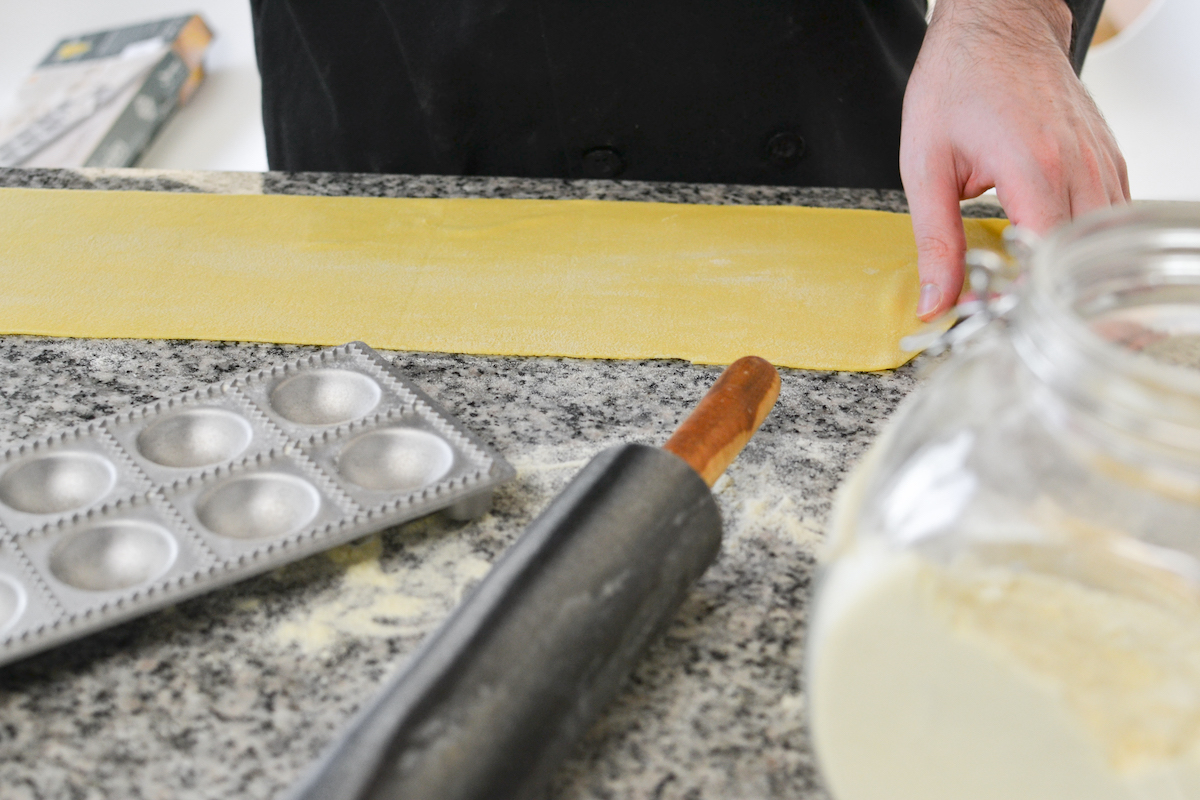
Once dough is rested cut into 4. Ensure to keep the pieces you are not working with covered so they do not dry out. Using a rolling pin or pasta sheeter roll each piece to the around 1mm. Dust with flour as needed to avoid the dough from sticking.
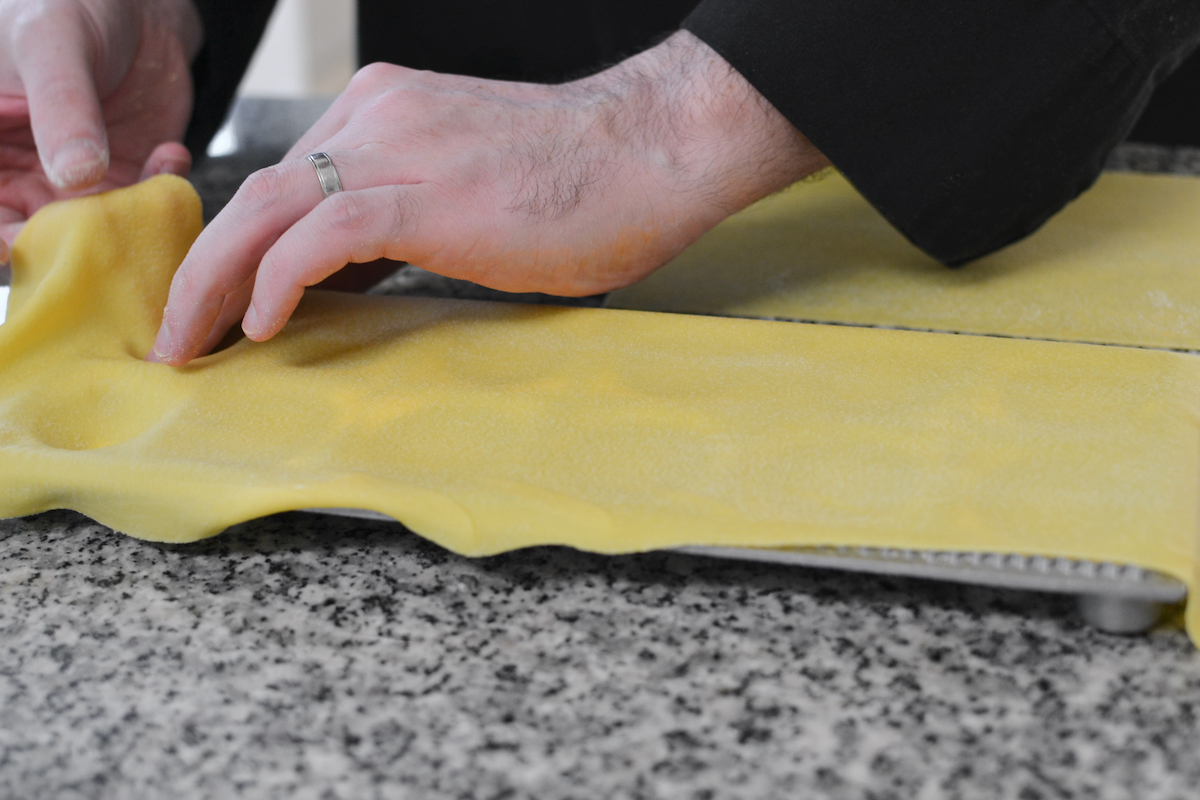
There are many ways to shape ravioli. You can you traditional pasta stamps, fold the dough onto itself or use a ravioli maker. The latter is my preferred method as it is quick, consistent and hassle free.
Measure out the sheet of dough to the length of the ravioli maker. Generously dust the ravioli maker with semolina flour and place the sheet of dough onto it, making sure to leave enough dough to fill the holes.
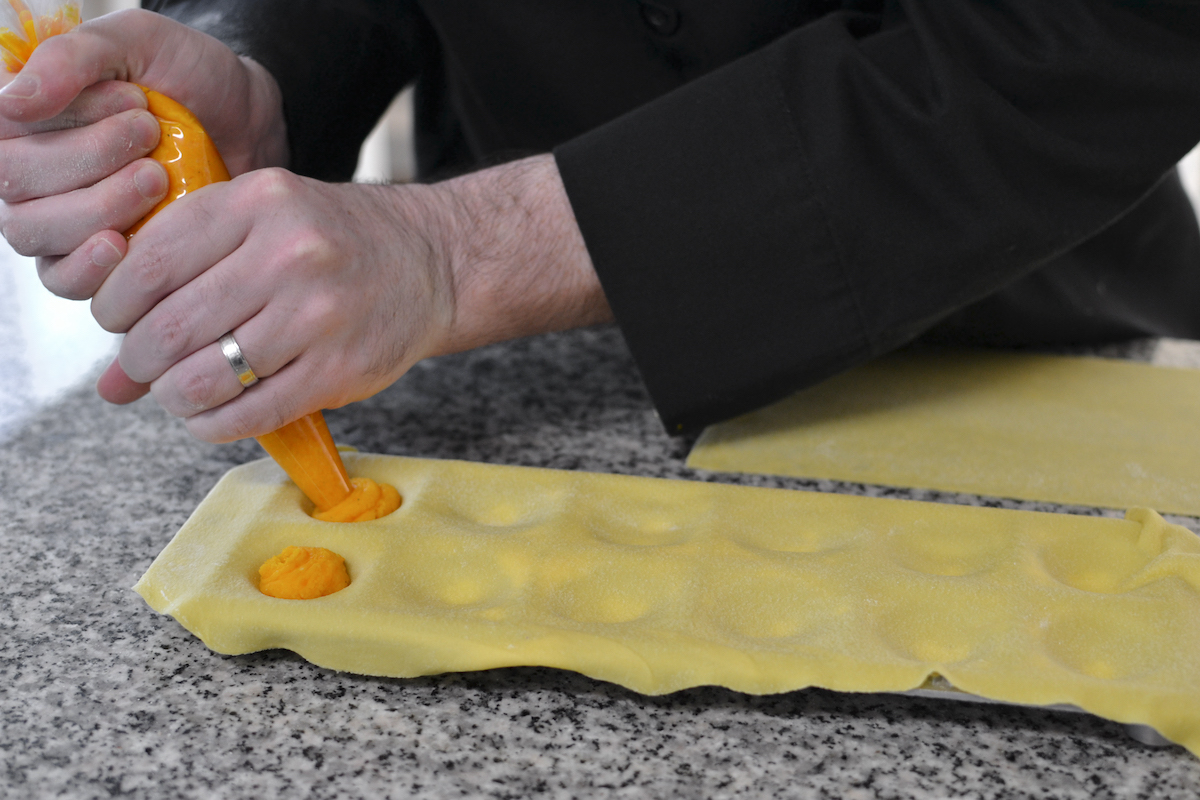
Add your filling into a piping bag and fill the ravioli holes to the top. Make sure not to overfill or the ravioli will not seal properly. Once all the ravioli are filled tap down on the ravioli maker to release any air bubbles that may have formed.

Lightly brush a small amount of water on the edges of the ravioli. Place the other half of pasta over the ravioli maker and press to seal. Roll a rolling pin along the ravioli to seal and press together. Peel the edges off and flip over releasing the ravioli.
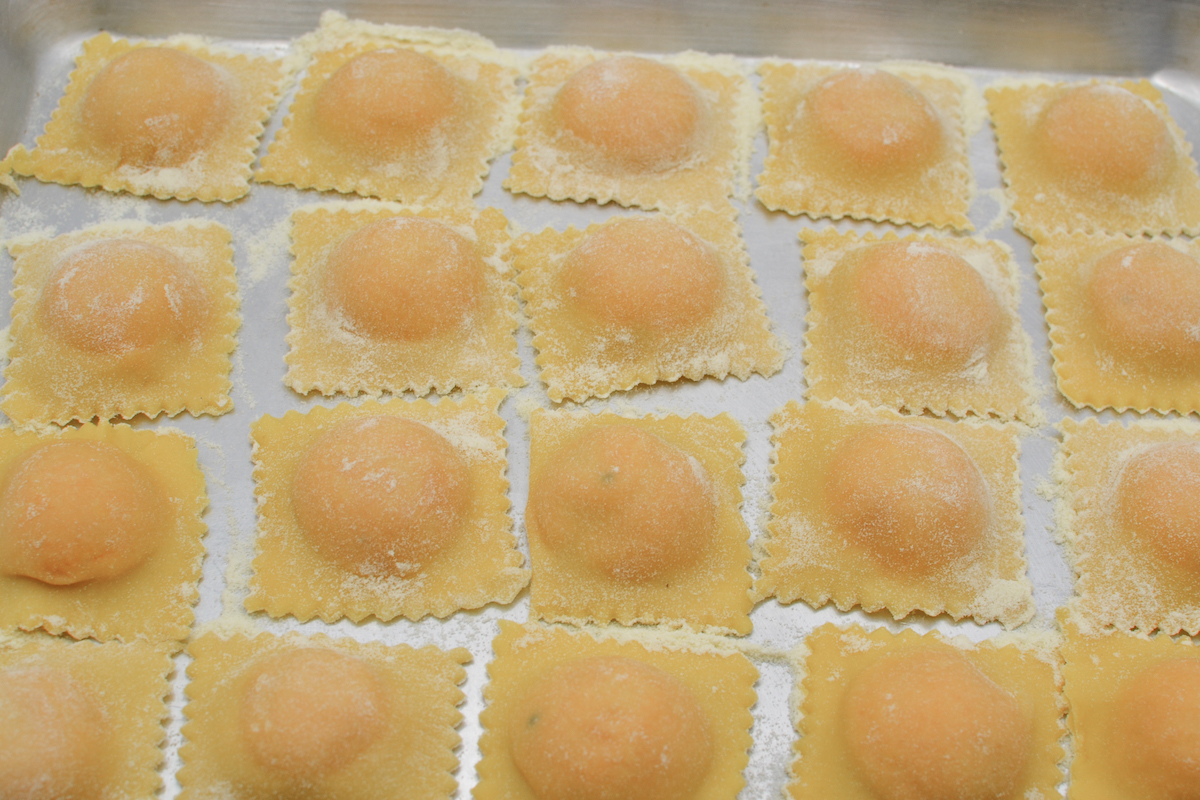
It is always best to let the ravioli dry out for several minutes. This will help avoid them from sticking as well as improve the texture and make it easier to transfer to the water.
If you are not going to cook these right away you can freeze them. When you are ready to cook them do not thaw, just add to boiling water frozen.
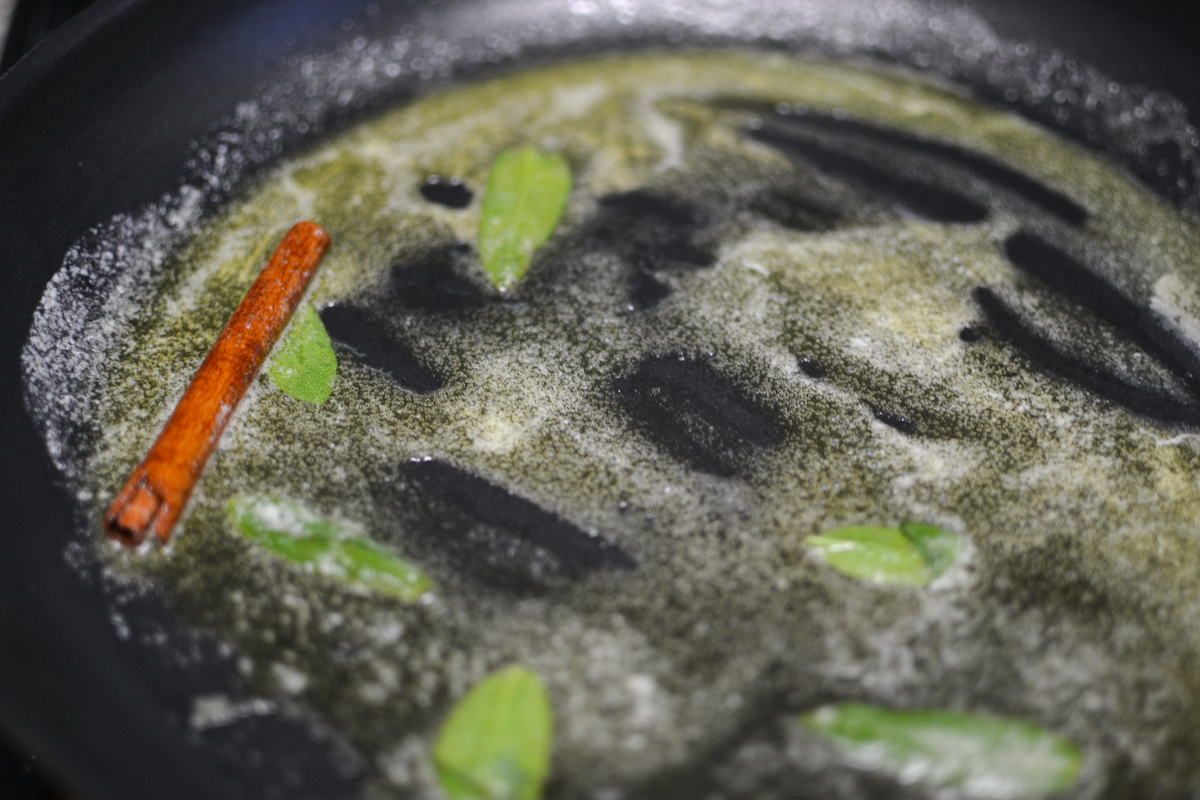
In a skillet add the butter, sage leaves and cinnamon stick. Heat over medium-low heat to brown the butter. It should be a golden brown. Turn heat to low until ravioli are done.
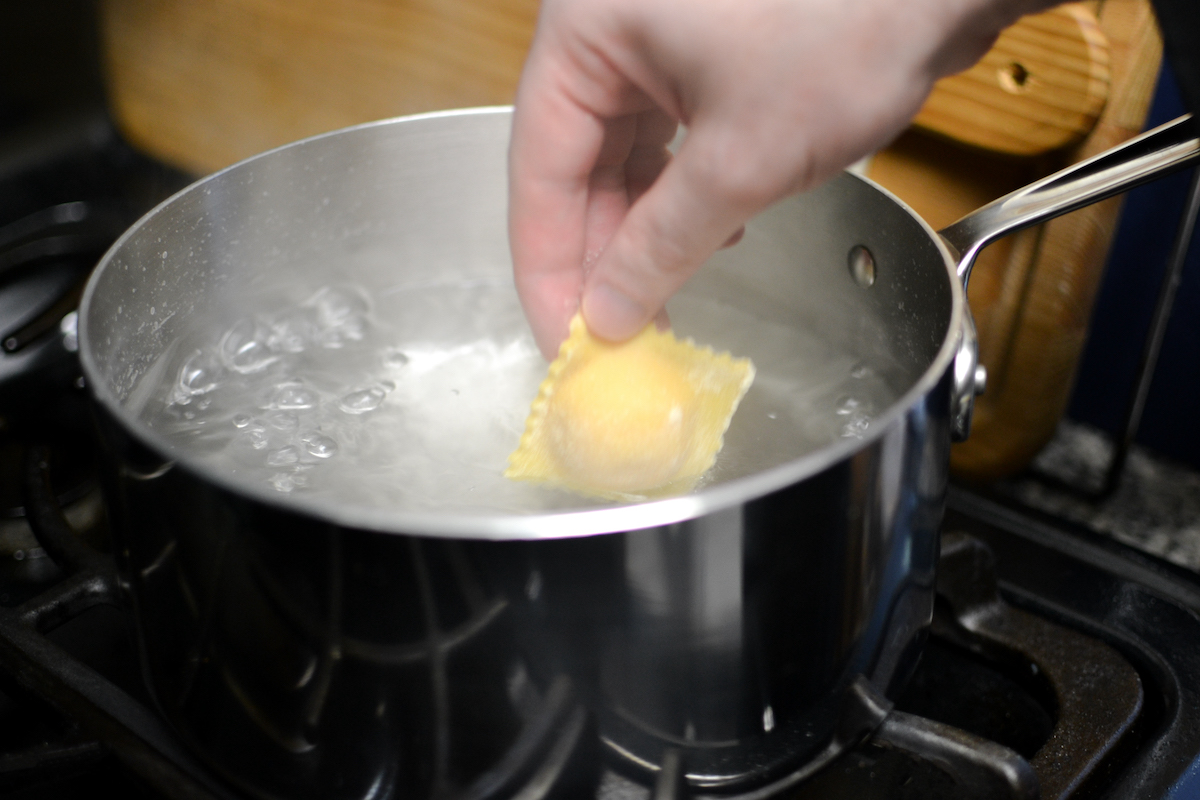
Place ravioli in a well salted pot of gently boiling water. If the water boils too hard it will break the ravioli. Cook for 3-5 minutes.
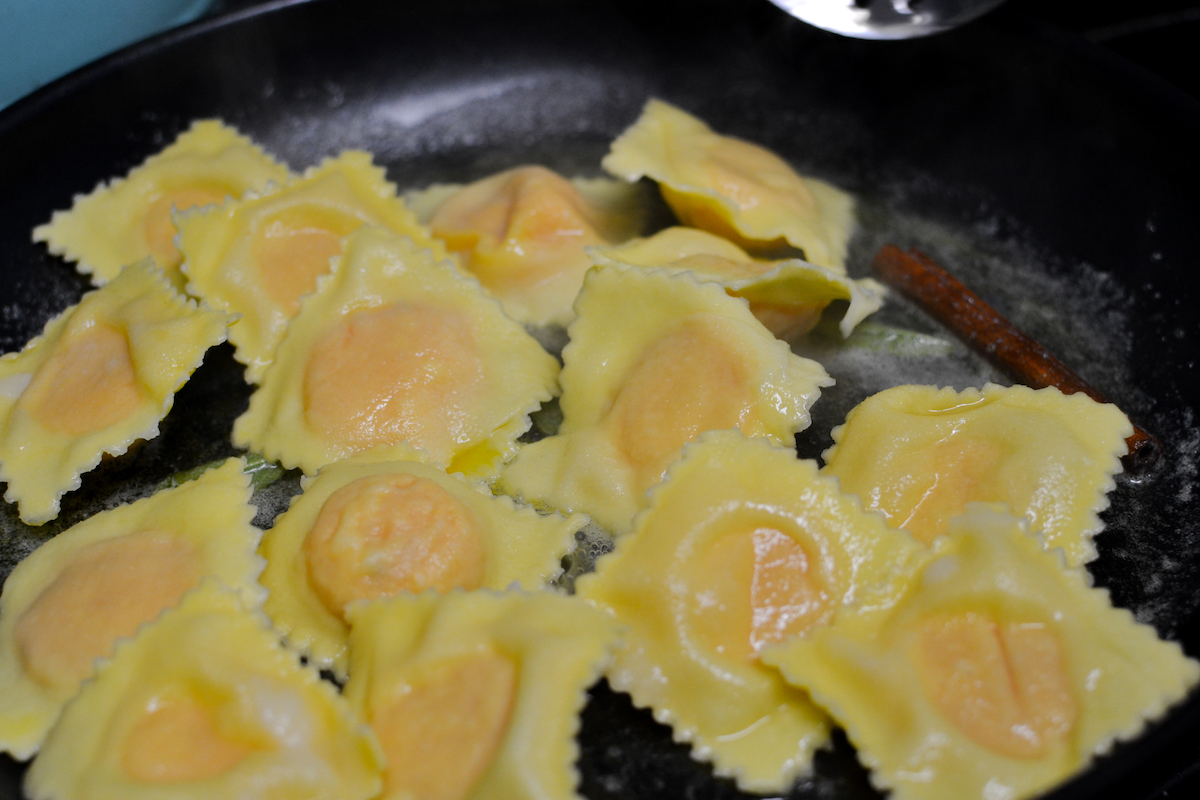
Remove the ravioli from the water and place in the butter sauce. Gently toss or stir to coat.
Remove and serve with parmesan and the crispy sage leaves.